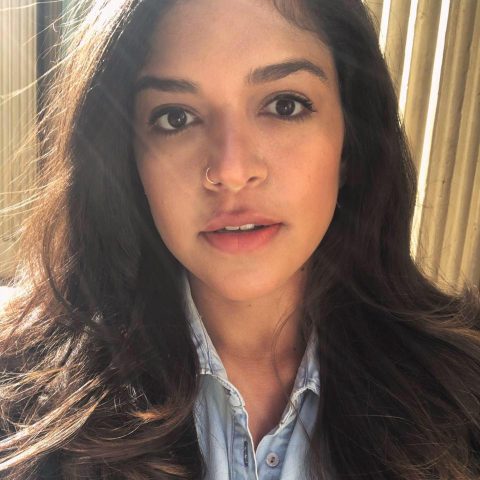My father (and my grandparents) emigrated from Cuba, and this piece hit me hard, despite the circumstances of the family here being very different than those of my own. You do an excellent job of capturing the emotional experience (and arc) of first- and second-generation Americans, and though this was hard to read it was also a great relief, a release of loneliness for me. Do you think the writing adage that the specific will unveil the universal is at play here, or is it something else?
I think so. This piece was one of those for me that comes so rarely—a piece that came out of me like a burst. It was definitely something that had been inside of me and wanted to be out in the world. One of the words that comes to my mind when I think about immigration, especially my own experience, is loneliness. The yearning of what’s known and familiar but far. How misunderstood and alone you feel in what you think is a pain that is unspeakable because your loved ones and your family, who sometimes are on the other side, can’t understand what it is to be living with the fear of waking up every day and not knowing if today is going to be the last day in that new place. And then every new day in the new place, is a day further away from your home. It’s a very lonely place to be in: ni de aquí ni de allá.
I remember being desperate for that feeling of being understood when I was in the thick of it and it was immigrant literature that helped me get through it. I really love when authors get specific with their writing and talk about punctual details, but there’s a power in talking to pain that may appeal or may speak to collective experience.
Can you talk a little about the importance of migration stories in general and, more specifically, Latinx voices, stories, and publishing?
Yes! Nowadays, 90 percent of the books I read, if not more, are by people of color. I’ve noticed that as a reader I veered to narratives of minorities because in school and in university all that we were presented with were classics of literature and contemporary white writers. Although I understand the need to read classics, I was starved for literature that represented my experiences and the ones of my community. I wanted to read about brown and black love interests, for once. And I wanted to see characters that looked like me and the people who I know. I was starved for literature about food that spoke to the food I grew up eating.
I feel that institutions imposed what I needed to read for a long time and now I feel that my dues are paid, now I want to keep reading stories that speak closer to me and that’s what I want to see published. If we read more authors of color who are writing for us, then we feel more empowered to write for generations to come who will hopefully be raised with literature that doesn’t only speak about one experience.
The thrust of this piece seems to be an emotional arc (as opposed to a character or plot arc). What is it about flash that allows us to explore non-traditional structures and is this what draws you to flash?
One of the things. I think that what drives me to fiction in general is voice, the ability to channel a character by how they sound and their particular quirks and tone that make them unique. With flash, I’m interested in experimenting with ways of narrating change in short spaces. In this piece it is through the emotional journey of the character and the one of its ancestors but for me sometimes flash is told through objects, a line of dialogue or even repetition. The beauty of the form, for me, is how it allows us to reinvent ourselves in the way we narrate stories. There’s a lot of room for experimentation in flash.
We talk about the power of place a lot, but what is the power of absence of place?
The power of memory. The ability to reconstruct and carry with you what was passed on to you (even if you don’t remember it) and that belongs to you always, regardless of where you go. The things that your ancestors gave you and that no one can ever take away from you–even if they wrestle you for it. What’s yours is yours, even if you think it is forgotten or lost.
What is your favorite meal?
I love seafood and I think there’s no seafood like the one you can find on the Caribbean coast of Colombia. In New York, I dream about the ceviches, the arroz, the camarón, and the fish I have back home. There’s nothing like it. I know there’s plenty of fresh fish everywhere—but for me nothing tastes like the one I have in my hometown, Barranquilla. We have influences from African cuisine, Lebanese cuisine, and even Peruvian cuisine (we use a lot of leche de tigre in our ceviches), which makes the way the coast prepares dishes very particular to the place.



 The core workshop of SmokeLong Fitness is all in writing, so you can take part from anywhere at anytime. We are excited about creating a supportive, consistent and structured environment for flash writers to work on their craft in a community. We are thrilled and proud to say that our workshop participants have won, placed, or been listed in every major flash competition. Community works.
The core workshop of SmokeLong Fitness is all in writing, so you can take part from anywhere at anytime. We are excited about creating a supportive, consistent and structured environment for flash writers to work on their craft in a community. We are thrilled and proud to say that our workshop participants have won, placed, or been listed in every major flash competition. Community works.